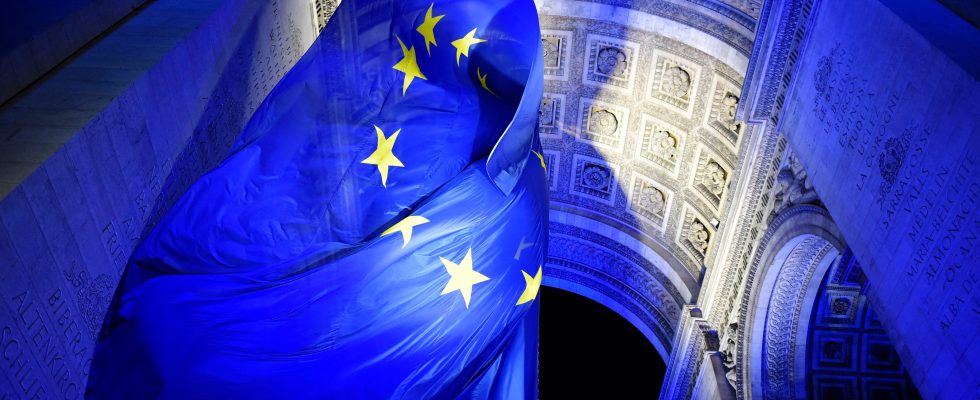The enlargement of the European Union will be a fundamental political issue in the coming years. Towards the countries subject to the former Soviet-socialist dictatorships, Europe has a historical and moral duty. These Europeans who fell on the wrong side of the Iron Curtain obviously have a vocation to be part of this envied club that constitutes the EU and the single market. Ten of the former “Eastern countries” joined in 2004 and 2007. In the Western Balkans, Serbia, Montenegro, Albania and North Macedonia have started accession negotiations for years, and are growing impatient.
However, the context is no longer that of 2004. Europeans no longer have the naive enthusiasm of the 1990s and 2000s, when the fall of the Soviet Union made people believe in the advent of democratic contamination in a world without enemy, rid of the Cold War. Today’s multipolar world is threatening. Even France, long opposed to EU enlargement, has changed its position. In 2017, Emmanuel Macron was the only one to refuse the opening of negotiations with Albania and Macedonia. In 2021, he opposed the accession of Ukraine and Georgia. His initiative for a European Political Community (EPC) including European states that are not members of the EU aimed, without saying so, to make them wait, or even to avoid their accession. Since the war in Ukraine, the French president has changed his mind, even wanting to speed up accession negotiations with kyiv. He was followed. The European Commission has given a favorable opinion on the candidate status of Georgia, and recommended the admission procedures for Ukraine, Bosnia and Herzegovina and Moldova, which will undoubtedly be approved by the heads of state and government mid-December.
Since February 24, 2022, the world has changed again. Concomitant wars and crises give new urgency to even further enlargement. The war of invasion of Ukraine led by Vladimir Putin, the pogrom of October 7, 2023 committed by Islamist Hamas and the reprisals of the Israeli army in Gaza, the turnaround of world opinions against the Western democratic model born after 1945, the prospect of the American election in November 2024 and a new president who could call into question the United States’ support for Ukraine and their participation in NATO, the Sino-American confrontation of which we are condemned to to be only spectators… The noose is tightening. Europe is becoming aware of its solitude in the face of the great friendly powers of China and Russia, themselves champions of a (more or less) global South that is increasingly hostile to the West.
This is a crucial challenge that awaits Europe, obliged not to become diluted in an enlargement that has become inevitable. If it does not integrate its continental allies into an organization which establishes respect for the rule of law as a principle of membership, it dooms itself to being put in the minority in the face of great powers who seek to weaken it. If it welcomes them without a defined strategy, it risks reproducing the mistakes made during the 2004 enlargement, which generated resentment and internal enemies who, like Viktor Orban in Hungary, became opposed to the values of the Union. that they had wanted to join. Experts have published a manifesto intended to serve as a basis for amending European treaties. But the EU will also have to avoid getting lost in excessive institutional reforms which would require national referendums, which, on such complex subjects, encourage sanctioning the leader more than answering the question asked.
Will there need to be integration with variable geometry, as France wants, or undifferentiated, as Germany wants? Enlargement must in any case not be technocratic or legal. The international context is forcing the EU to change its nature. For both the new and the old, it is no longer just a question of participating in or joining a large market, but of contributing together to a geopolitical project, this “strategic autonomy”, implying an increase in military budgets. It is time.
